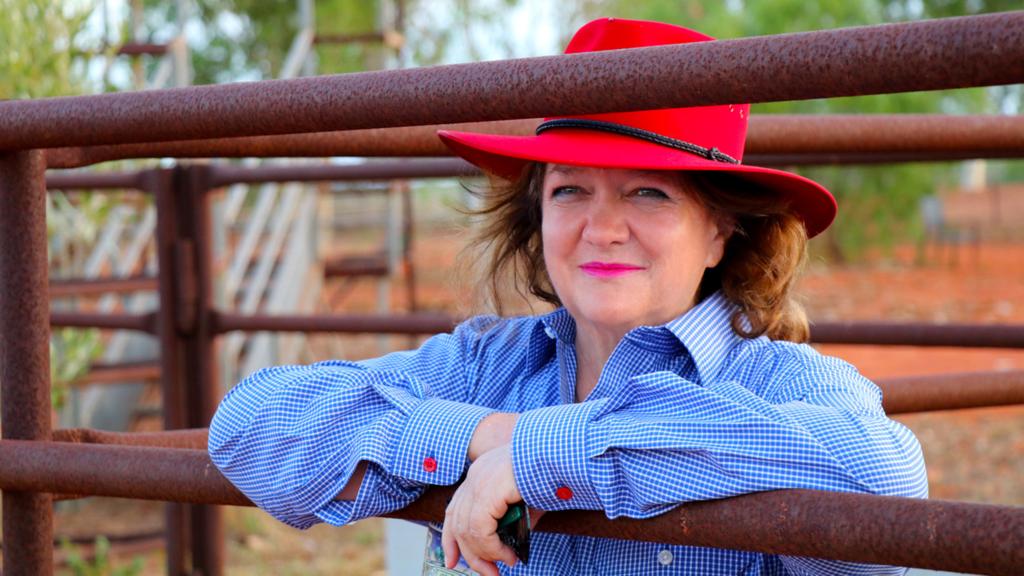Article by Rocco Loiacono courtesy of The Epoch Times.

Amid growing fears of a recession, Federal Treasurer Jim Chalmers announced on June 28 that the $4.2 billion (US$2.8 billion) surplus forecast for the 2022-23 budget will be higher.
Key drivers of the improved budget position were understood to be, among other things, higher tax revenue and stronger commodity prices than forecast by the Commonwealth Treasury in May.
Former Western Australia Premier Mark McGowan had previously announced on May 11 last that swelling iron ore royalties and GST payments from the Commonwealth were the reason for the West Australian (WA) state budget having a bumper surplus of more than $4 billion for the third straight year.
The common factor to the improved budget position federally and the seemingly strong WA state budget position is commodity prices from mining, with one of the crucial contributors being Hancock Prospecting Pty Ltd, led by its executive chairman, Gina Rinehart.
In fact, Rinehart, Australia’s richest person, on June 2, was named Western Australian of the Year in recognition of her generous philanthropy and unrivalled corporate success.
At the ceremony, Rinehart was lauded by outgoing Premier McGowan for her “outstanding contribution to the state and national economy.”
Indeed! One could say that Rinehart has been hard at work saving the entire Australian economy through her mining activities.
However, such a statement, while true, does not do justice to Rinehart’s contribution to Australia more broadly, as well as her undoubted business acumen.
It is well understood in WA business circles that, at the time of its founder, Lang Hancock’s death, Hancock Prospecting was not in the best financial shape. There was particular concern over the Roy Hill mining tenements.
Rinehart, who took over the company after her father’s death, was urged to abandon the project. Notably, all professional advice at the time insisted that the tenements were of little value.
Rinehart went against that advice and turned the company around.
Roy Hill is now a first-class major iron ore mine, creating jobs both directly and indirectly for thousands of people, and is an award-winning US$10 billion flagship project for Hancock Prospecting.
The Western Australian of the Year award also recognises the many millions Rinehart has invested in sport over the years, not to mention her philanthropic work through her charity, the Georgina Hope Foundation.
Rinehart’s charitable objectives support a number of medical, sporting, educational, health, and community organisations. She also serves as Patron of Australia’s internationally renowned Olympic swimming, rowing, volleyball, and synchronised swimming teams.
Mining Is Australia’s Advantage
Rinehart penned a piece for the Spectator Australia this month, pointing out the long-term damage we are doing to this nation by constantly demonising mining as “evil” and “dirty.”
She wrote: “If we want our standards of living to continue, we simply must have more investment in mines, and more mines developed. For that, our governments must better understand mining and put policies in place that actually welcome, not deter, investment.
“Kids need to be reminded that we all need mining, be that for mobile phones, iPads, refrigeration, air conditioning, electric vehicles and more. And that Australia wouldn’t have our high living standards, envied by those around the world, who would love to have our natural resources and the opportunities they bring.”
In a recent speech, Rinehart compared the contribution of Hancock Prospecting’s Roy Hill and other iron ore mines to that of governments over three decades.
“Canberra Hill is not a wealth creator or nation builder, but a user and waster of taxpayer funds, an inefficient disperser of taxpayers’ funds, and its record shows a place which fails to understand economic realities,” she said.
“This lack of economic realities has resulted in policies which restrict our pensioners, students and even veterans from working as much as they may choose, while there is a widespread worker shortage, a worker shortage crisis, affecting many businesses and supplies.”
At a time of record revenue, thanks to mining, one would expect government services to be provided abundantly and efficiently.
Unfortunately, the opposite is the case. Notwithstanding the money flowing into state government coffers, the standard of the provision of services, which is the key role of state governments, has never been so poor.
In WA, ambulance ramping is at record levels. Hospitals are burdened with record waiting lists. For the second time in two years, Fiona Stanley Hospital suffered a crippling IT outage that left Perth’s biggest hospital without access to electronic medical records, X-rays, and other diagnostic results for multiple hours.
Police officers are resigning in record numbers while crime rates increase.
Then there is the two-year delay and $10 billion over-budget Metronet, the WA government’s signature rail transport policy.
And there are record energy prices, which will continue to rise, thanks to, as Rinehart pointed out, the government’s plans to stop coal mining and coal-fired power plants and effectively stop investment into more gas and production with their price caps.
Rinehart’s warnings are timely, and governments—state and federal—which owe their fiscal position to her should take heed.
Views expressed in this article are the opinions of the author and do not necessarily reflect the views of The Epoch Times.















